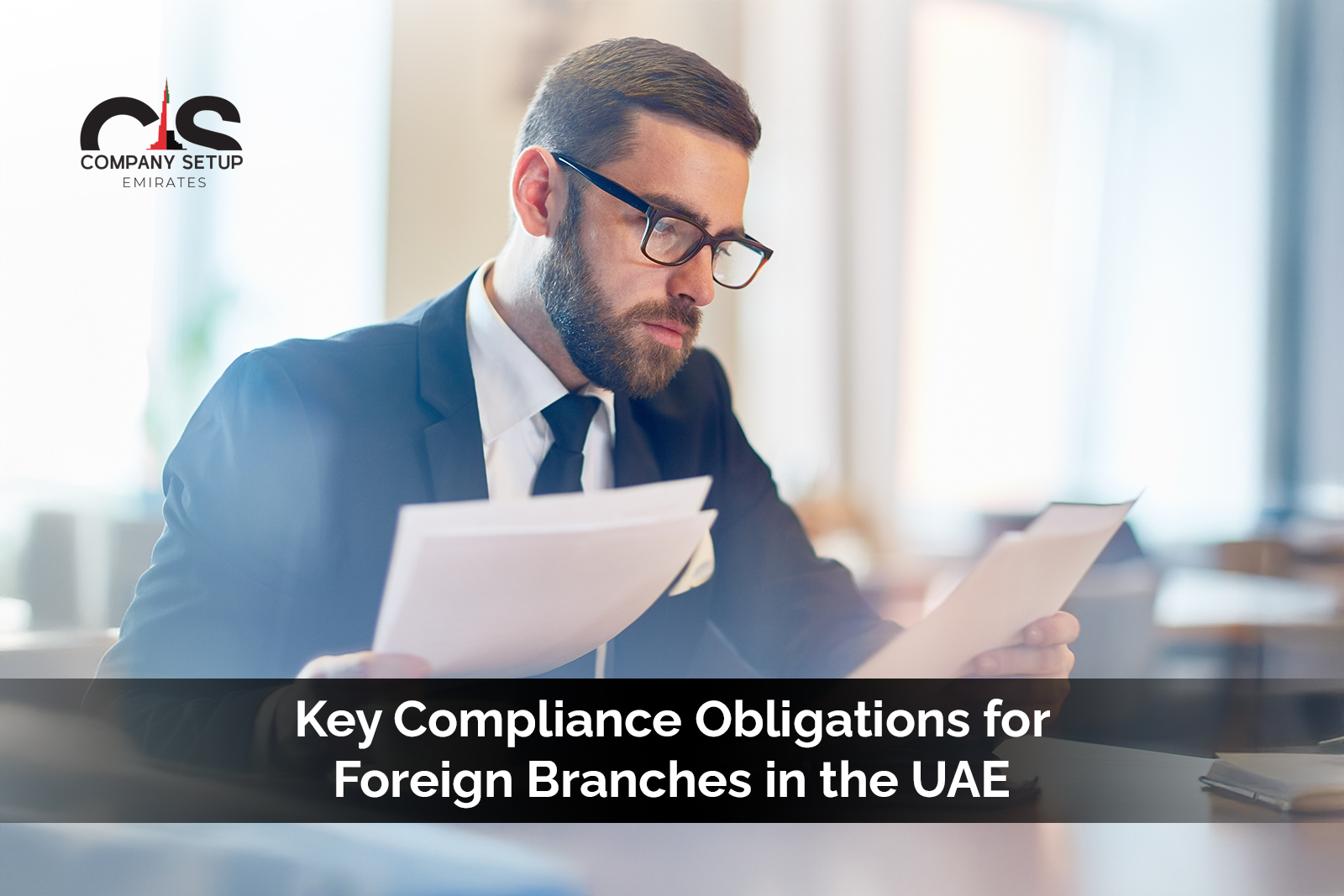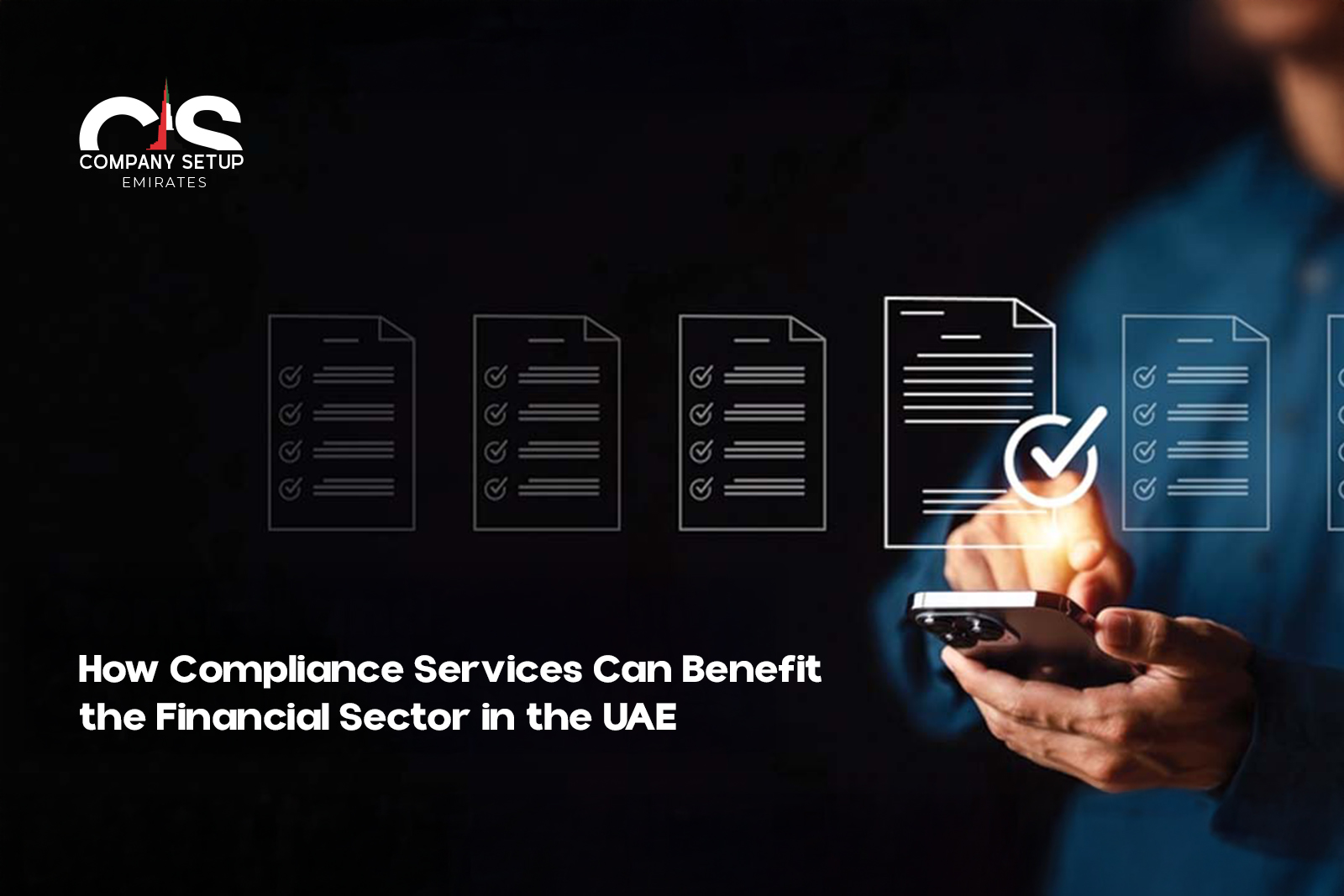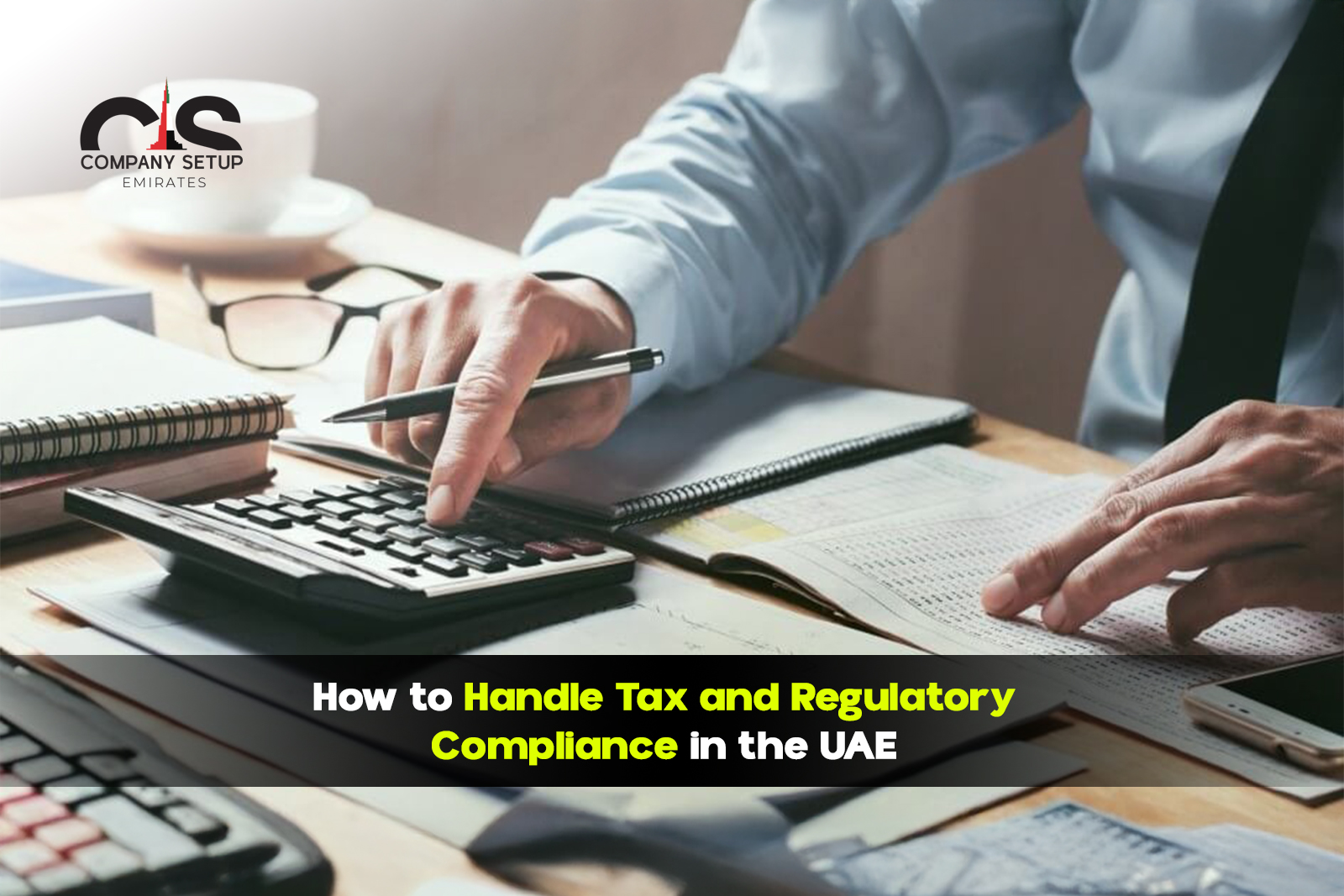Navigating the UAE’s tax and regulatory landscape can sometimes feel like trying to decode a secret language—full of unfamiliar rules, deadlines, and paperwork. And let’s be honest, it can be overwhelming if you’re running a business while trying to keep up with everything. But here’s the thing: staying compliant with UAE tax laws and business regulations isn’t just about avoiding fines or penalties—it’s about building a business that’s trusted, transparent, and set up for long-term growth.
From understanding corporate tax obligations and VAT compliance to keeping up with UAE regulatory compliance requirements like AML, ESR, and personal data protection, there’s a lot on your plate. But once you know what to track and how to manage it, compliance becomes less of a headache and more of a tool to strengthen your business.
So, let’s break it down together in a way that actually makes sense. By the end of this guide, you’ll know how to handle UAE financial regulations, keep your company on the right side of the law, and create a foundation for smooth, sustainable growth.
Understanding the UAE’s Tax Landscape
If you’re running a business in the UAE, the tax system might feel like a maze at first. But here’s the thing—it doesn’t have to be complicated once you know the rules.
Let’s break it down step by step so you actually understand what you need to do and why it matters.
Corporate Tax: Who Pays and How Much?
So, the big change came in June 2023.
The UAE rolled out its corporate tax regime under Federal Decree-Law No. 47 of 2022. If your business earns money, this affects you—whether you’re a small start-up or a multinational giant.
Here’s the simple version:
- Taxable Income up to AED 375,000: You pay nothing. Yep, zero. The government essentially gives small businesses a buffer to grow without taxing them.
- Taxable Income above AED 375,000: You pay 9% on the profits above that threshold. It’s not the total revenue—it’s what’s left after deducting your expenses. Think of it as a way to support businesses but still collect revenue from bigger earners.
- Large Multinational Enterprises (MNEs): Here’s where it gets interesting. Starting January 2025, MNEs with certain global revenues are subject to a 15% minimum top-up tax, following the OECD’s global minimum tax rules. This is to make sure huge companies pay a fair share, even if they try to structure profits in low-tax countries.
Familiarising yourself with UAE tax laws early on can prevent surprises when it comes to corporate tax and VAT obligations.
So, what does this mean for you? If your business earns over AED 375,000 in profits, you need to start thinking about corporate tax planning. For multinationals, it’s even more critical—you’ll have to review your global operations to see if the 15% top-up applies.
Pro tip: Keep track of your profit calculations carefully and plan ahead. Corporate tax isn’t just a number on paper—it affects your cash flow, budgeting, and future investments.
VAT Compliance: Are You Registered?
Now, let’s talk VAT.
The UAE introduced Value Added Tax (VAT) at 5%, and it applies to most goods and services. Even though 5% sounds small, missing deadlines or making mistakes can cost you far more in penalties.
Here’s how VAT registration works:
- Mandatory Registration: If your taxable turnover exceeds AED 375,000 per year, you must register. No exceptions.
- Voluntary Registration: If your turnover is between AED 187,500 and AED 375,000, you can register, which can be useful if you want to claim input VAT on purchases.
- Non-Resident Businesses: Even if you’re not based in the UAE, you must register for VAT if you provide taxable goods or services here.
Once you’re registered, your responsibilities include:
- Issuing VAT-compliant invoices – every sale needs to clearly show the VAT amount.
- Filing periodic VAT returns – usually quarterly, though some businesses can opt for monthly.
- Paying VAT on time – late payments attract fines and interest.
Pro tip: Use accounting software to track your VAT automatically. It reduces errors, saves time, and keeps you compliant without stress.
Here’s the reality: failing to comply with VAT or corporate tax rules isn’t just about fines. It can hurt your credibility, affect your bank relationships, and even scare off investors. Staying ahead of your obligations keeps your business safe and sets you up for growth.
Regulatory Compliance: Beyond Taxes
You might think that paying your corporate tax and filing VAT returns checks all the compliance boxes—but here’s the truth: tax is just one piece of the puzzle. The UAE has a comprehensive regulatory framework, and staying on top of it is critical to protect your business, avoid fines, and maintain a strong reputation.
Navigating the regulatory framework in the UAE requires an understanding of multiple layers—from AML to ESR and data protection laws. Let’s break down the key areas you need to focus on.
Anti-Money Laundering (AML) Regulations
AML and CFT (Countering the Financing of Terrorism) regulations are serious business in the UAE. The authorities aren’t just checking boxes—they want to make sure businesses aren’t being used to move illicit money or fund illegal activities.
Here’s what you need to do:
- Conduct Customer Due Diligence (CDD)
Before onboarding clients or partners, you need to know who they are. This includes verifying identities, understanding the nature of their business, and assessing the risk of financial crime. - Report Suspicious Transactions
If something seems off—large cash deposits, unusual payment patterns, or transactions that don’t make sense for the business—you must report it to the Financial Intelligence Unit. - Maintain Records
Keep detailed records of transactions, client information, and compliance reports for the legally required period (usually five years).
Pro tip: Set up automated systems to flag unusual transactions. It saves time, reduces human error, and keeps you audit-ready.
Failing to comply can lead to hefty fines, license suspension, and even criminal liability. Worse, it can tarnish your business reputation, which is hard to recover from.
Economic Substance Regulations (ESR)
If your business operates in certain sectors like banking, insurance, intellectual property, or investment fund management, you need to show that your activities are genuinely carried out in the UAE. This is what Economic Substance Regulations are all about.
Key requirements include:
- Qualified Employees: You need enough skilled staff working in the UAE to carry out the relevant activities.
- Operating Expenses: Expenses must match the level of activity. Simply having a license isn’t enough—you need real operations.
- Physical Offices: A registered address and an office where business activities occur are mandatory.
Failing to meet these obligations can result in fines, public disclosure of non-compliance, or even deregistration of your business.
Pro tip: Keep a clear record of all operational activities, staffing, and expenses to demonstrate substance in case of an audit.
Personal Data Protection
Data isn’t just a tech issue—it’s a legal obligation.
With Federal Decree-Law No. 45 of 2021, the UAE enforces strict rules on how businesses handle personal data.
Here’s what you need to know:
- Lawful Data Collection and Processing
Only collect the data you actually need and ensure it’s used for legitimate purposes. Avoid over-collecting or keeping outdated information. - Respect Individual Rights
Individuals have the right to know what data you hold about them, request corrections, and even ask for deletion in certain cases. - Report Data Breaches Promptly
If a breach occurs, you must notify the authorities and affected individuals quickly. Delays can lead to bigger fines and reputational damage.
Pro tip: Invest in secure storage systems, encryption, and clear privacy policies. Training your team on data protection best practices is just as important.
Why Regulatory Compliance Matters
At the end of the day, regulatory compliance in the UAE isn’t just about avoiding fines—it’s about building trust. Banks, investors, clients, and partners all look for companies that are fully compliant. Falling behind can affect your ability to operate, expand, or even retain licenses.
By proactively managing AML, ESR, and data protection obligations, you’re not just ticking boxes—you’re protecting your business, your reputation, and your future growth.
Navigating Cross-Border Compliance
Are you working with clients or partners outside the UAE? Then you need to be aware of cross-border regulations and tax compliance.
For example:
- Double Taxation Agreements (DTAs): The UAE has signed agreements with more than 90 countries to avoid double taxation. This affects how much tax you pay on income from foreign sources.
- Import/Export Compliance: If your business deals with goods, you need to ensure customs duties and excise taxes are handled correctly. Mistakes here can lead to fines or delays in shipment.
Think of this as your global “checklist” so your UAE-based business doesn’t trip over international rules.
Corporate Governance: Why It Matters
Corporate governance is not just a fancy term—it’s your company’s backbone when it comes to compliance. Ask yourself:
- Do you have a clear organisational structure?
- Are responsibilities and decision-making processes defined?
- Do you have a system for monitoring and reporting compliance?
Regular audits and a clear reporting structure are essential for corporate compliance in the UAE, ensuring your business meets all regulatory standards.
Strong governance helps you stay aligned with corporate compliance regulations in the UAE and avoids penalties from poor oversight. Plus, investors love it when things are crystal clear.
Practical Tips for Staying Compliant
- Stay Informed: Regulations can change. Regularly check the Federal Tax Authority’s website and other official sources for updates.
- Maintain Proper Records: Keep detailed records of all transactions, contracts, and communications. This will be invaluable during audits.
- Train Your Team: Ensure your staff understands compliance requirements and the importance of adhering to them. Implementing strong UAE compliance management practices helps you monitor, track, and report your obligations efficiently.
- Seek Professional Advice: Consult with tax and legal professionals to navigate complex regulations and ensure compliance.
Final Thoughts
Handling tax and regulatory compliance in the UAE might feel overwhelming at first, but it doesn’t have to be. By staying informed, keeping thorough records, and seeking expert guidance when needed, you can make sure your business runs smoothly and stays fully compliant.
This is where Company Setup Emirates comes in. We help businesses navigate the UAE’s complex tax and regulatory landscape, from corporate tax and VAT compliance to AML, ESR, and data protection requirements. With our support, you can focus on growing your business while we handle the compliance details.
Don’t wait for issues to arise—take control of your compliance today. Contact Company Setup Emirates now and ensure your business is set up for long-term success.









